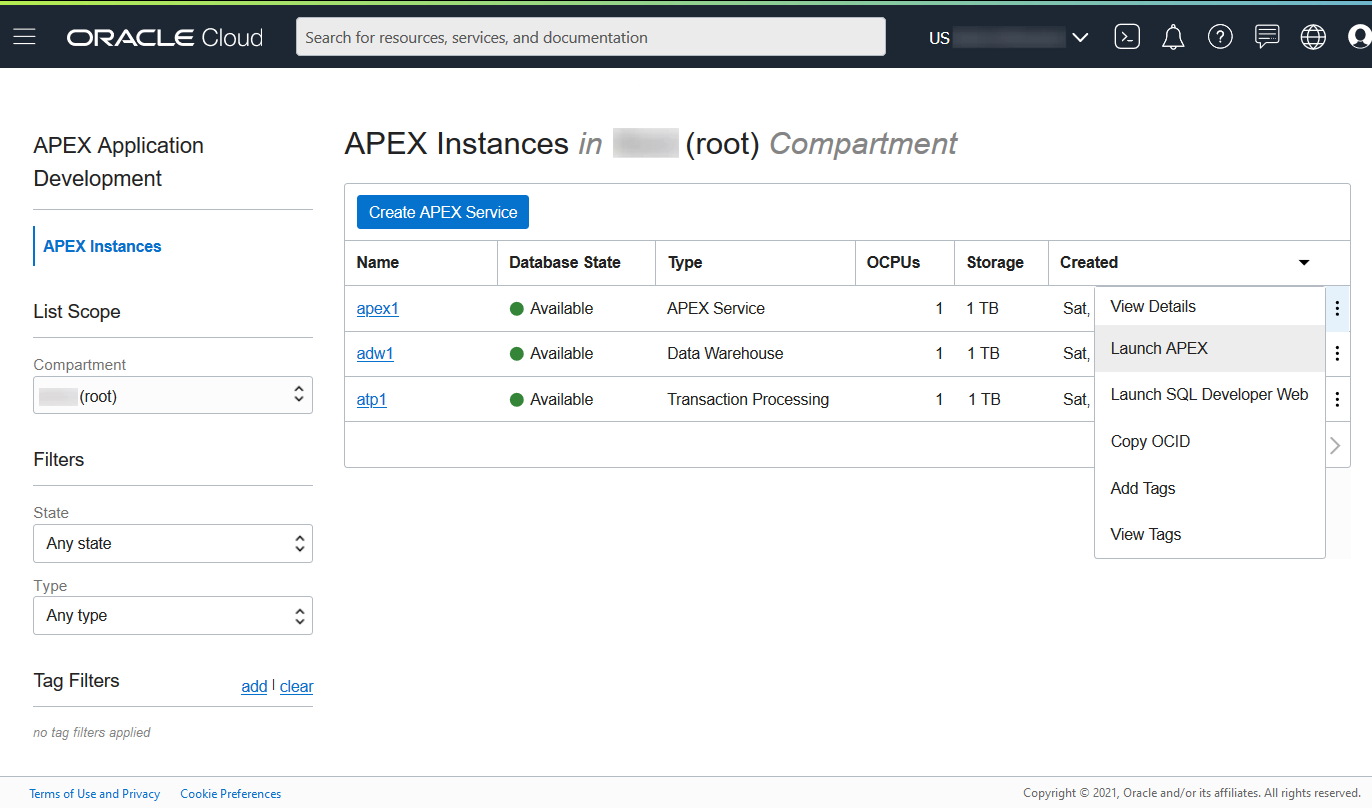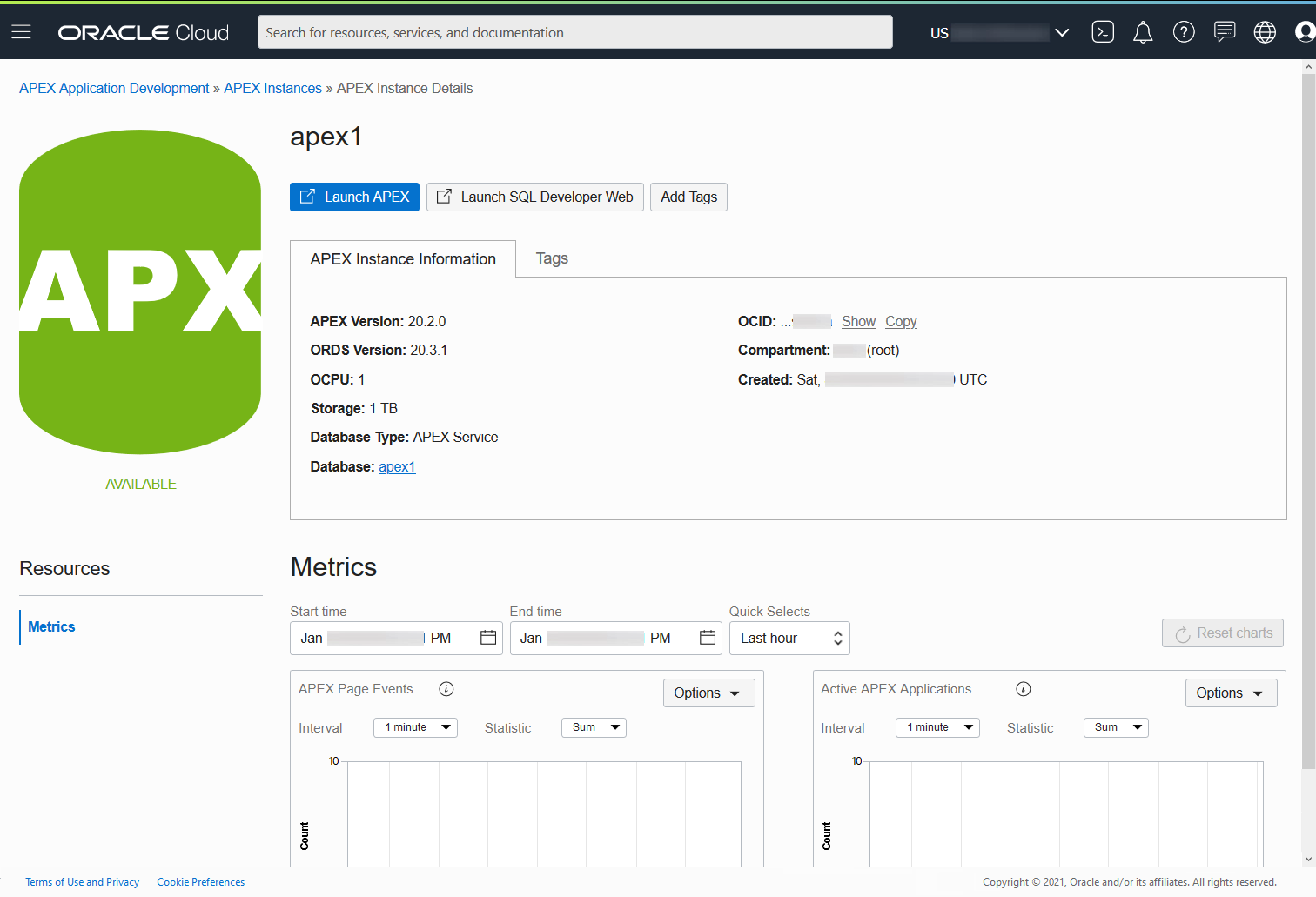Today, January 13th, 2021, Oracle Corporation unleashes a new Oracle Application Express (APEX) service for rapidly building and deploying modern data-driven applications in Oracle Cloud. This new service is an ideal on-ramp to Oracle APEX low-code application development in Oracle Cloud Infrastructure (OCI). It provides a simple, ready-to-use, and easily accessible platform that makes it incredibly fast to create powerful apps.
About Oracle APEX and Low-Code Development
Oracle APEX radically simplifies development and deployment of data-driven applications, enabling citizen and professional developers to create applications up to 38x faster than coding. It is used opportunistically by thousands of Oracle customers across the globe to build bespoke applications, enterprise reports, spreadsheet replacements, and more. It has approximately 500,000 developers, advocates, and partners worldwide, with live applications currently in use by millions of end-users daily. Oracle Corporation recently tapped Oracle APEX to rapidly create COVID-19 pandemic response applications for patients and healthcare professionals in the United States and to support national disease vaccination initiatives in three African countries.
Key characteristics of Oracle APEX include:
- Low-Code. Oracle APEX provides powerful low-code components that deliver modern user experiences, look beautiful on both mobile and desktop browsers, and can be added to applications via simple drag-and-drop. Example components include Interactive Grid, Faceted Search, Cards, and Charts. Developers define component behavior using declarative settings and populate the display data using standard queries. All application development can take place in a web browser – no additional tools required.
- Multi-Model. Applications created in Oracle APEX integrate diverse types of data including relational, JSON, and spatial data. In addition, applications can utilize data from diverse sources including SQL databases and REST interfaces. Developers optionally can extend their applications with APEX plug-ins, client-side JavaScript, and PL/SQL scripts.
- In-Database. Because the Oracle APEX engine runs within Oracle Database, in close proximity to application data, applications can be executed with maximum performance and scalability. This eliminates complexity from corresponding middle tiers, making them highly streamlined.
- Available Everywhere. With Oracle APEX, developers can build and deploy applications everywhere that Oracle Database runs including on-premises and in Oracle Cloud, Oracle Cloud@Customer, Oracle Dedicated Region Cloud@Customer, and third-party clouds. Moreover, Oracle APEX makes it easy to migrate applications between on-premises environments and hybrid cloud or pure cloud environments.
New Oracle APEX Application Development Service
In response to rising interest in low-code application development and requirements of the worldwide Oracle APEX developer community, Oracle is proud to announce the immediate availability of Oracle APEX Application Development. This new cloud service, also known as “APEX Service”, combines Oracle APEX low-code development with Oracle’s next-generation Oracle Cloud Infrastructure (OCI) and Oracle Autonomous Database – Shared Infrastructure (ADB) to provide breakthrough capabilities and benefits.
Firstly, a new developer-optimized user experience in OCI Console makes it easier than ever to get to Oracle APEX and manage multiple APEX instances within the same cloud tenancy. A new screen in the OCI Console shows Oracle APEX on any ADB-related service, enables you to quickly create APEX Service instances, and allows you to directly launch into APEX and start developing on a running instance with one click.

Drilling into an existing Oracle APEX instance displays a new APEX-specific page that shows helpful details including instance name, version information, and new APEX usage metrics and charts.

Secondly, new APEX Service supplies critical capabilities in a single all-inclusive package that is easy for low-code developers to uptake and use. The service not only provides Oracle APEX, but also an underlying ADB database and a pre-configured middle tier with Oracle REST Data Services (ORDS) and SQL Developer Web. Developers can utilize ORDS to create and manage custom REST endpoints on their application data. They can utilize SQL Developer Web to graphically model data and compose SQL queries. APEX Service and its included database are fully elastic, so developers can dynamically scale hardware resources to fit the changing needs of their APEX apps. You can scale up to 128 OCPUs and 500 Terabytes of storage, backed by the extreme performance of Oracle Exadata. Scaling can be done manually or automatically in response to changing user load. If an application evolves to require Oracle Net Services (SQL*Net) client connectivity, then a single click can upgrade APEX Service to a full ADB instance that supports SQL*Net. Also, data transfer into and out APEX Service (ingress + egress) is provided at no extra cost.
Thirdly, because APEX Service is built on top of ADB, it is fully managed (autonomous) by default. This means Oracle APEX; the database; and the service networking, physical storage, and security all are pre-configured, tuned, and ready to use. Both Oracle APEX and the database are automatically patched and upgraded for you – with advanced notifications. Oracle APEX typically is upgraded twice per year to add new low-code innovations and freshen its look-and-feel, while also preserving applications and carrying them forward for years to come. Developers can defer an Oracle APEX upgrade for up to 45 days if needed. Of course, certain settings in APEX Service optionally can be changed, but it is nice to know that developers have very few configuration and maintenance responsibilities out-of-the-box.
Finally, perhaps the biggest news related to new APEX Service is its highly affordable price. Now, you can get Oracle APEX running in OCI for less than US$360 per month*. This price makes Oracle APEX much more accessible to low-code developers of all kinds, whether they are employed by an enterprise, working independently, or volunteering their time. Furthermore, unlike low-code services from other vendors, there are no fees per-application, per-developer, or per-end-user. There are no limits on the number of applications that can be deployed, number of developers using the service, or end-users that can use apps. Developers are free to deploy several Oracle APEX applications supporting 1,000s of end-user accounts on a single APEX Service instance.
Conclusion
New APEX Service delivers what users love most about Oracle APEX low-code application development, ADB, and OCI in an easy, all-inclusive, and affordable package. It nicely complements the availability of Oracle APEX elsewhere in OCI (e.g. in ADB, Oracle Exadata Cloud Service, and Oracle Database Cloud Service), adding the major benefit of making low-code development with Oracle APEX accessible to citizen and professional developers alike at a new low price.
We hope you enjoy using Oracle APEX Application Development!
* * * * * * *
Next Steps
Join Oracle Live on Wednesday, January 13th, 2021 at 9:00am PT to see the announcement of new APEX Service. Event registration is here.
Watch a deep dive and demonstration video of new APEX Service on YouTube here.
Learn more at oracle.com/apex and oracle.com/application-development/apex. For personalized assistance, please contact an Oracle Sales representative at +1-800-633-0738.
* * * * * * *
* Estimate based on 31 days of continuous usage, billed hourly.